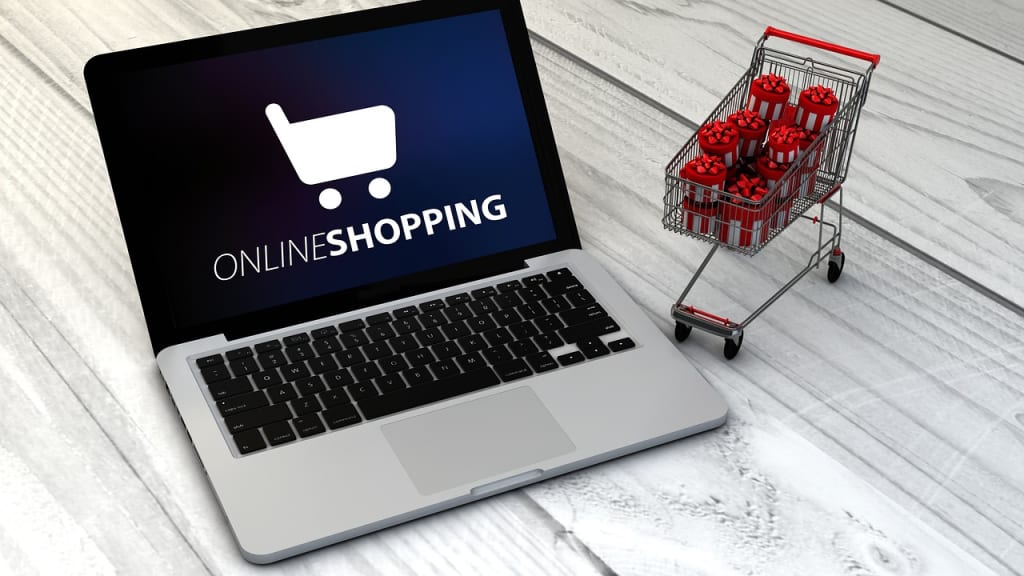Be Aware of Your Privacy and Safety While Shopping Online
Shopping Online

If you are concerned about your privacy and safety while shopping online, there are several simple things you can do to protect yourself. You can start by making sure you have strong passwords and by checking that your website is secure (SSL encryption). Additionally, you can also avoid using apps and websites that have been identified as fraudulent.
Cybercriminals can intercept your Data
The internet has allowed cybercriminals to delve into the minds of shoppers and gain unauthorized access to their systems. Using clever social engineering and technology, hackers can steal sensitive information from consumers. Fortunately, there are many ways to stay safe while shopping online. Whether you're buying a new laptop or a snazzy smartphone, it's important to follow the rules of thumb and ensure you don't fall prey to a scam.
To make sure you're not wasting your money on a dud, be sure to stick to legitimate websites and use a secure credit card. You should also be on the lookout for malicious emails. Generally, these contain a link or attachment that leads to a fake website. Often, the sender will impersonate a legitimate company, such as a bank or retailer, to get you to provide your credentials.
Besides stealing information, a malicious email can provide hackers with the tools they need to escalate the attack. As a result, you could wind up with a ransomware threat that's blocking your computer or extorting you for the price of your system's recovery.
A man-in-the-middle (MITM) attack is another way hackers may snag your data. This type of attack allows the offender to intercept and eavesdrop on your communications. Typically, this type of attack requires that you log in to your account from a phishing email.
There are many other security methods to consider, including maintaining a robust security system, implementing an antivirus software program, and educating employees on the dangers of cybercrime. It's also important to take note of the security features your vendors and partners employ. For example, don't forget to ask about the aforementioned encryption technology before handing over your credit card details.
Avoid Third-party Apps
The best way to tell if a third-party app is the one is to see if it's compatible with your operating system. Oftentimes, a third-party app is more of a marketing gimmick than a legitimate product. If you're not careful, you could be suckered into downloading a rogue application. Not to mention a whole host of other nefarious activities. Fortunately, a savvy user can easily distinguish between the good and the bad. Here are some tips and tricks to make the process a breeze.
First off, don't download an app from the dark web. This is especially true if you use an Android device. Also, be on the lookout for unauthorized installs from your device provider. Lastly, don't be fooled by fake reviews or phony badges. Even though a third-party app may look legitimate, it can still be a gateway to your data and privacy. After all, you don't want to share your personal information with a malicious stranger.
Check for SSL Encryption on a Retailer's Website
If you're looking for a way to save money on your next purchase, you may want to consider taking advantage of the Saving Gain Coupons. This type of coupon is usually available through email and social media, and you can often find a great deal when you take the time to look around for them. However, before using one, you should check to ensure that the offer is valid.
If you want to shop online at a retailer, you will need to make sure that their site is SSL encrypted. This can prevent hackers from accessing your information. It also helps build customer trust.
The most effective way to check if a website is secure is to look at the URL. You may notice that the website's URL starts with HTTPS, which means that the website is SSL-encrypted. In addition, there will be a padlock icon in the address bar.
The padlock icon may be located on the left or right side of the URL bar. When you click on the icon, you will be presented with a pop-up window that shows the certificate details.
The Privacy Policy should also be presented. A privacy policy explains the retailer's security practices. Any reputable company should be open about its privacy policies.
Many browsers will display a warning when you visit a non-SSL-encrypted website. They will ask you whether you trust the SSL certificate.
SSL certificates are important to any company that needs to collect sensitive information, such as a bank account. If your credit card and other personal information are at risk, you should invest in one. Also, it's always a good idea to double-check a certificate's validity before you provide your information.
SSL certificates are also helpful to anyone who wants to boost the security of user data. These certificates provide authentication, encryption, and validation.
To avoid scams, be aware of SSL certificates and other security precautions. Use antivirus software and a VPN to protect yourself. Ensure that you read a merchant's privacy policy and avoid sharing your personal information.
While SSL encryption is not a guarantee that your data will be secure, it is important to check your site for safety.
Avoid Fraudulent Websites
There are many steps you can take to avoid fraudulent websites while shopping online. These include researching the site, using a comprehensive antivirus, and logging off when you're finished.
You should also consider limiting the amount of information you give out on your computer. This will help keep your personal and financial information safe. It can also be a good idea to store your web address in bookmarks for future use. If you are unsure whether a website is legitimate, it's best to contact your bank or credit card company.
Also, you may want to check with the Better Business Bureau (BBB) to find out if there have been any complaints about a specific website. They provide a Scam Tracker, which allows you to search for past complaints against a business.
In addition to relying on your instincts, you can also use your browser's Safe Browsing feature to help you check out a website before you make a purchase. However, not all sites display verified identity information in the address bar.
Another way to identify fraudulent sites is to use a tool like ICANN's domain search tool. These tools can help you verify the legitimacy of a website by checking its URL and the company name.
Additionally, it's a good idea to look at the layout of the website. The better websites are usually well-polished and have a clean and uncluttered appearance. Bad grammar, misspelled words, and pixelated images can be signs of a scam.
You should also be aware that some retailers will ask you for an unusual payment method. For example, you might be asked to send cash by mail instead of using a credit card. While this might seem a bit odd, it is common for scammers to use this to get a hold of your personal information.
Create a Strong Password
If you can find the best promo code for DoBargain at coupon websites like Savinggain.com, Allovercoupon.com, and Budgetgainer.com. They often have exclusive deals and offers from DoBargain Discounts that you can take advantage of. Additionally, you can sign up for DoBargain's newsletter to get the latest offers delivered right to your inbox. Thanks for reaching out, and I hope this helps!
If you want to protect your privacy and safety while shopping online, you need to create a strong password. However, creating a strong password can be a daunting task. Here are five tips to help you get started.
It's important to choose a password that's unique to your account. A weak password can be guessed or cracked, and hackers can steal your personal information. For this reason, it's a good idea to have a password for every online account.
Use a password manager to store your passwords and make it easy to manage your login credentials. Some of these applications will even generate strong passwords for you.
Make sure that your passwords include numbers and special symbols. These will be harder to guess than letters. Additionally, you should avoid using keyboard patterns as passwords. Instead, use meaningful phrases to create your passwords.
Also, you should have a long password. Although long passwords are tough to remember, they are harder to crack.
You should also try to use a different password for each online account. You may be tempted to use the same password for all your accounts, but this is a big security risk.
It's also best to change your passwords regularly. This will ensure that you aren't exposed to identity theft and other breaches.
While it's important to create a strong password, you should also consider two-factor authentication to strengthen your security. When you're doing a security check on your accounts, be sure to verify that you have the correct password.
To make your password more secure, you can add spaces to existing passwords. Adding space can help you to break up long passwords.
Conclusion
If you're looking to shop online, there are several tips you can follow to ensure your safety. These tips cover everything from avoiding phishing scams to making sure your purchases are protected by secure sites.
One of the biggest threats to online merchants is phishing scams. This type of attack involves emails that contain links to malicious websites.
About the Creator
DoBargain
Welcome! Here you can find the latest information on a wide range of topics, from lifestyle and health to business and technology.
Visit https://www.dobargain.com/!
Enjoyed the story? Support the Creator.
Subscribe for free to receive all their stories in your feed. You could also pledge your support or give them a one-off tip, letting them know you appreciate their work.






Comments
There are no comments for this story
Be the first to respond and start the conversation.